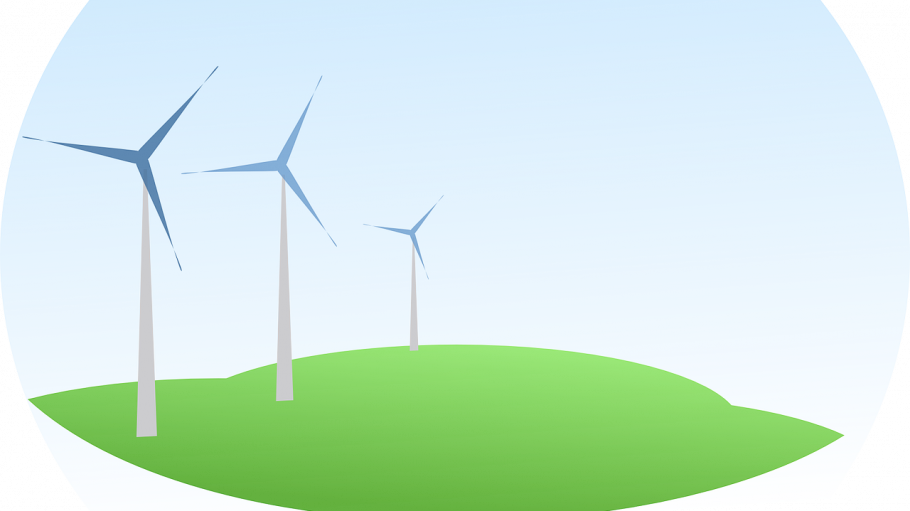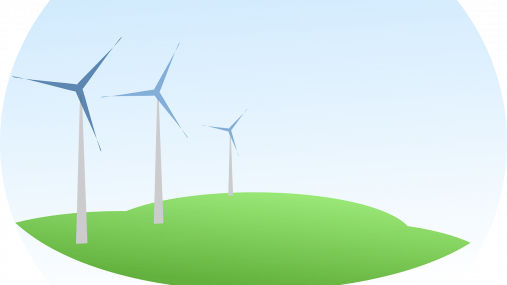
Publications » Position papers » The EU must speed up renewables and renewable hydrogen to secure industry energy supplies and keep u
The EU must speed up renewables and renewable hydrogen to secure industry energy supplies and keep up the pace with green industry projects
Downloads and links
Recent updates

Brussels, 21 June 2022 – The availability and affordability of renewables and renewable hydrogen for industries such as steel ready to decarbonise at large scale must become the EU’s top priority for reaching climate neutrality and accelerating independence from Russian fossil fuel supplies. This is the joint call issued by WindEurope and the European Steel Association (EUROFER) ahead of a key week where crucial decisions on energy and climate will take place at EU level. The worsening gas supply situation and the need to cut dependencies from Russia increases the urgency to speed up green energy infrastructure investments in the EU.
The EU steel industry has been working on alternative production routes for more than a decade. There are now 60 low carbon projects ready to be scaled at industrial level covering the main EU steel producing countries and companies. The number of projects grows by the month, and so their green energy and financial needs. Today, capital investment is set at €31 billion, operational costs at €54 billion (pre-Russian war in Ukraine data), while clean electricity needs amount to 150 TWh, half of which for hydrogen production, by 2030. Their CO2 emissions abatement potential is equivalent to a cut of -55% compared to 1990 levels.
Delivering on these projects hinges on an abundant supply of renewable electricity and renewable hydrogen. Competitive and scalable wind energy is uniquely placed to meet this demand. But this will require accelerating deployment. Which is all the more urgent as Europe shifts away from Russian fossil fuels in response to the war in Ukraine.
“Delivering the green steel society wants will mean a lot more renewable electricity, and renewable hydrogen. REPowerEU set a 510 GW target for wind by 2030, that’s 39 GW of new wind per year, more than double what we’re installing now. The wind supply chain can deliver, the finance is there. The bottleneck is permitting. It’s too slow and complex. Council and Parliament need to adopt the REPowerEU plan for permitting as a matter of urgency”, said Giles Dickson, CEO of WindEurope.
“Usually, industry adapts to energy supply and not vice-versa. There is no business case for investment in green steel if green energy carriers are not available. The steel industry has developed breakthrough technologies for producing low carbon steel that rely on non-fossil energy sources, but we don’t have enough renewables production nor the related infrastructure to transport it where it has the highest impact. Not to talk about hydrogen: there is no developed infrastructure at all”, said Axel Eggert, Director General of the European Steel Association (EUROFER). “The rapid expansion of wind energy and connected power grids and hydrogen production infrastructure is key for a successful transition. In return, energy producers and society can get green steel with close to zero CO2 emissions”, he stressed.
The REPowerEU communication will be a crucial element in establishing the right conditions at EU level to support the transition towards climate neutrality whilst supporting industry in coping with the current challenges. With the right rules on permitting – considering renewables in the overriding public interest, and accelerating permitting inside and outside ‘renewables go-to areas’, the wind industry can help decarbonize European steel with home grown energy.
“We call on the EU institutions and the Member States to double down on their actions for guaranteeing security of supplies, strengthening critical supply chains necessary for the energy transition, and investing in the green technologies we need to the benefit of citizens and industry alike”, concluded Mr. Eggert and Mr. Dickson.
About WindEurope
WindEurope is the voice of the wind industry, actively promoting wind energy across Europe. We have over 400 members from across the whole value chain of wind energy: wind turbine manufacturers, component suppliers, power utilities and wind farm developers, financial institutions, research institutes and national wind energy associations.
WindEurope is recorded in the EU transparency register: 19920706471-21
About the European Steel Association (EUROFER)
EUROFER AISBL is located in Brussels and was founded in 1976. It represents the entirety of steel production in the European Union. EUROFER members are steel companies and national steel federations throughout the EU. The major steel companies and national steel federations in the United Kingdom and Turkey are associate members.
The European Steel Association is recorded in the EU transparency register: 93038071152-83.

Download this publication or visit associated links
Letter to Commission President von der Leyen and Executive Vice-President Sejourne'
Brussels, 27 November 2024 – The European steel industry is at a critical juncture, facing irreversible decline unless the EU and Member States take immediate action to secure its future and green transition. Despite repeated warnings from the sector, the EU leadership and governments have yet to implement decisive measures to preserve manufacturing and allow green investments across Europe. Recent massive production cuts and closure announcements by European steelmakers show that time has run out. A robust European Steel Action Plan under an EU Clean Industrial Deal cannot wait or manufacturing value chains across Europe will simply vanish, warns the European Steel Association.
Brussels, 12 November 2024 - Ahead of Commissioner-Designate Séjourné’s hearing in the European Parliament, European steel social partners, supported by cross-party MEPs, jointly call for an EU Steel Action Plan to restore steel’s competitiveness, and save its green transition as well as steelworkers’ jobs across Europe.